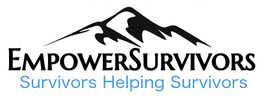|
Choosing to disclose, or share, a history of childhood sexual abuse (CSA) is a completely individual decision. While some forms of treatment or healing may involve disclosing the trauma to move forward, this may not be the most beneficial option depending on each survivor’s personality or history. Some individuals may want to share what has happened to them, while others may never choose to tell anyone for the rest of their life. Sometimes, the decision not to disclose a history of abuse may be due to a previous attempt to disclose that did not go as planned. For example, some survivors may have tried to tell someone when they were a child or when they were experiencing the abuse and may have been ignored or not believed. This may cause feelings of fear or a lack of desire to try to open up again.
Many survivors will never disclose the abuseIt has been estimated that nearly 20% of all survivors of childhood sexual abuse will never disclose the abuse, and roughly 60% will not disclose the abuse until at least five years after the first incident.1 Whatever the reason may be for not disclosing an abuse, each individual’s story is their own to tell. However, much they want to share is completely up to them, as well as when, or if, they disclose this information to their friends, family, or partners. Although this decision and situation can be handled a variety of ways, there are a few things to consider that may help an individual make the decision to disclose a history of abuse, and ideas to make the process as positive and healthy as it can be. These include, but are not limited to:
0 Comments
Your comment will be posted after it is approved.
Leave a Reply. |
Archives
May 2024
Categories
All
|



 RSS Feed
RSS Feed